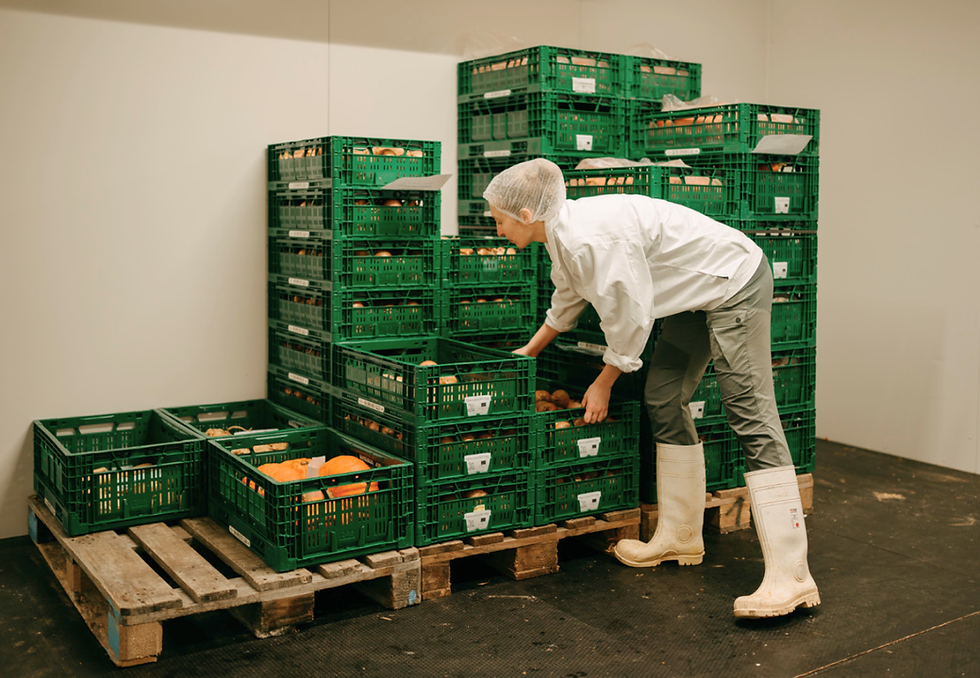Sodexo is now aiming for "operational sustainability"
- François Remy

- Nov 21, 2025
- 5 min read
The French catering giant has set itself a new roadmap for corporate responsibility. With "Better Tomorrow 2028," Sodexo is making a strategic shift to transform sustainability constraints into drivers of economic and commercial performance.

Health, safety, sustainability. Sodexo promises brighter days ahead. This isn't about analyzing the French giant's latest quarterly results (which have forecast a slowdown in revenue growth in 2026 due to difficulties in its US operations). Rather, it's about its Better Tomorrow 2028 strategic shift, which appears to mark the end of the era of "peripheral" CSR and the beginning of one focused on "operational sustainability."
While the company readily claims its status as a "pioneer" in this area, having launched its first roadmap of this kind as early as 2009, the challenge seems quite different this time: it's about integrating these objectives into daily performance indicators. Officially, this is "to amplify the social, societal, and environmental impact of its activities," but, if we read between the lines of corporate communications, it's to secure margins and build customer loyalty.
In the wake of the Covid crisis, the international group undertook a profound restructuring (including the spin-off of Pluxee) in order to become a pure-player in catering and services once again. Now, in 2025, "we have reached the end of a cycle during which we have taken major steps in transformation, thus laying solid foundations for the future," stated Sophie Bellon, daughter of the founder and chair of the board of directors of Sodexo.
Successes and new challenges
This transition was notably marked by the completion of the previous sheet
Sodexo's CSR roadmap, Better Tomorrow 2025, launched nine years earlier and aligned with the recommendations of the United Nations Sustainable Development Goals, has seen most of its objectives met, as detailed by the French company in its Universal Registration Document for the 2025 fiscal year . Examples include, in the area of human resources, a "historically low" frequency rate of accidents resulting in lost work time, an inclusive environment with 42% female senior managers, an average of 12.4 hours of training per employee per year (+5.1%), and an employee benefits program in place in more than 70% of the countries where Sodexo operates. From an environmental perspective, the reduction of direct and indirect greenhouse gas emissions related to the company's energy consumption (scopes 1 and 2) of -37.7% compared to 2017, or the "99.3% of Sodexo consumers" who had access every day to options promoting a healthy lifestyle.
From a logic of commitment to a logic of execution
Building on these achievements, the BT28 roadmap was designed as a pragmatic action plan that outlines measurable progress towards "business sustainability," meaning sustainability that is "grounded in operational realities and results-oriented." This approach can be summarized by a single driving force: mobilizing 426,000 employees to serve 27,000 client sites, thereby generating a positive impact on the lives of 80 million consumers... and the planet.
“Today, growing responsibly means contributing to a safer, more sustainable world.”
“Healthier and fairer,” Sodexo insists. But the previous version of the Better Tomorrow plan also highlighted recurring challenges related to the complexity of global supply chains, the importance of consolidated data, and “the need to better link sustainability actions to on-site operations.”

Beyond its laudable nature, a sustainable strategy must address other, even more practical challenges, such as optimizing resources in the current market conditions. The goal of reducing food waste by 2028 provides a good illustration of this convergence between ecology and economics. Food rationalization means a direct reduction in raw material purchasing costs. Similarly, the transition to a more plant-based product range addresses climate imperatives while mitigating exposure to the volatility of animal protein prices.
Or, like compliance, particularly with the European Corporate Sustainability Reporting Directive (CSRD), which requires companies to disclose detailed and reliable information on their environmental, social and governance (ESG) impacts.
Sustainability as a catalyst for transformation?
The first year of implementing the CSRD thus coincides with Sodexo's new approach to managing and communicating its sustainability commitments. That said, the company didn't start from scratch, and its long-standing sustainability trajectory was simply accelerated by regulatory pressure.
“We chose to view the CSRD as a catalyst for transformation. A dedicated multidisciplinary team coordinated efforts between the sustainability, finance, internal control and project management functions. Our approach strengthens comparability, makes data more reliable and offers a transparent view of our performance,” says Marc Rolland, Secretary General of Sodexo.
From a financial perspective, the evolution of climate and social regulations, changes in consumer expectations towards healthier diets, and growth linked to low-carbon, plant-based and waste reduction solutions represent opportunities but also more material risks for Sodexo.
The group is thus fully aware of the reputational and legal risks of failing to comply with increasingly stringent local regulations or of failing to meet its greenhouse gas emissions targets. Sodexo risks losing market share if it remains inactive or hesitant in the face of growing demands from its clients and consumers. Even marketing must be (eco-)responsible, as the French giant recognizes, because it offers "new market opportunities and access to a broader consumer base." And on the social front, diversity and retention policies are less about humanist ideals than about limiting the exorbitant costs associated with turnover and the loss of employer brand appeal.

"A culture of continuous improvement"
Admittedly, having non-financial information on the sustainability strategies and efforts of large companies, stripped of purely marketing hype, is just as essential as having accounting data. It allows us to assess the value creation, resilience, and competitiveness of a major economic player.
“Building a sustainability framework with the same rigor as that of finance requires time and discipline. This evolution reflects that of IFRS standards in the financial sector: their maturation took years, but they now constitute a recognized framework. Ultimately, the CSRD constitutes a lever for enhanced transparency,” assures Sébastien de Tramasure, Chief Financial Officer of the Sodexo Group.
Sustainability in business, a broad concept that may seem abstract, encompassing dimensions of processes, protocols, materials, and intangibles, remains undeniably complex. However, industries appear to be increasingly moving away from viewing it as a constraint and toward embracing it as a differentiating factor, a tool for operational development.
“We deliberately chose to ground it in the operational realities of our regions and countries. As such, the CSRD is both a compliance exercise and a powerful catalyst for the ambitions we have set within the framework of Better Tomorrow 2028,” emphasizes Mouna Fassi Daoudi, Group Sustainability Director of Sodexo. “It has allowed us to strengthen our data and systems, mobilize cross-functional areas such as responsible procurement, climate, and human resources, and create a culture of continuous improvement.” It remains to be seen whether this culture will spread throughout the sector and, above all, whether it will last.




